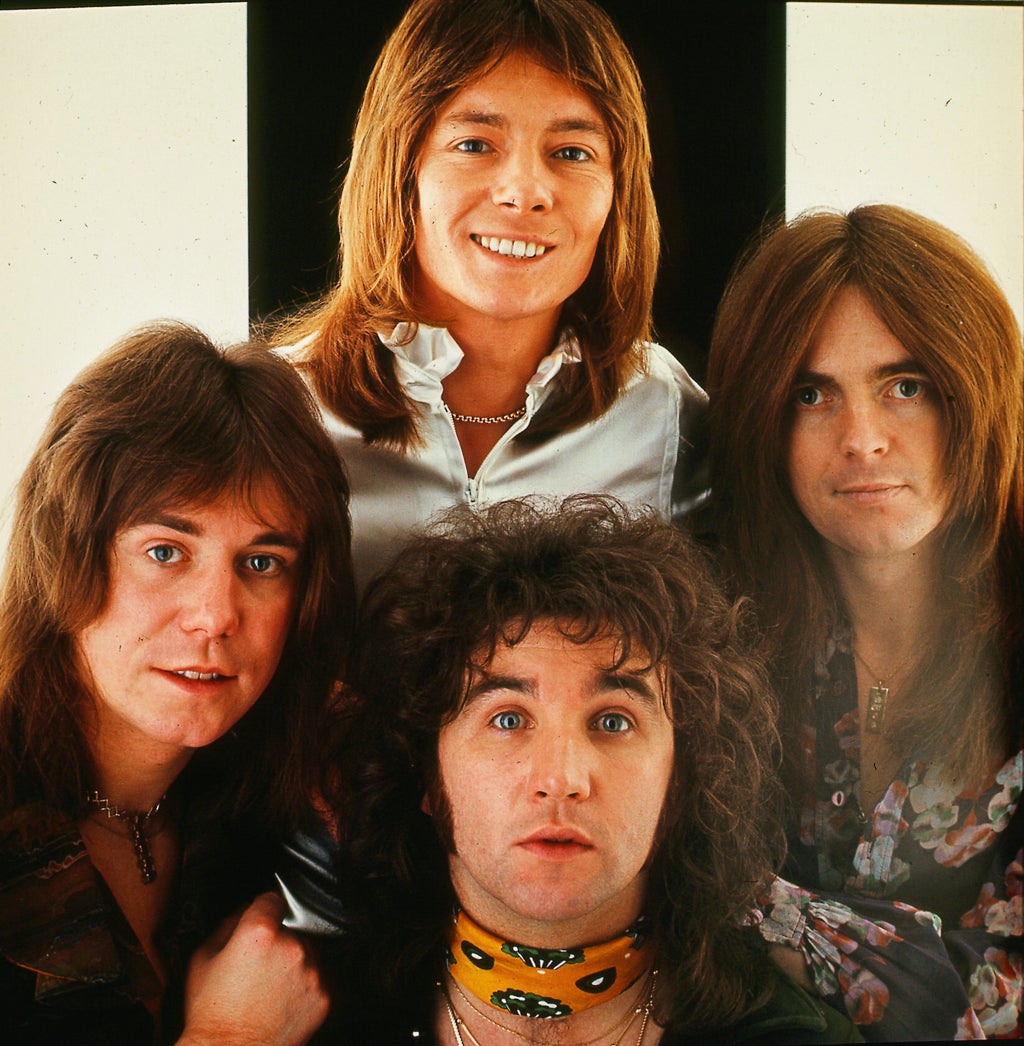David Lister: Ageing British rock bands never die. They just end up performing in the Kremlin
The Week in Arts


Your support helps us to tell the story
From reproductive rights to climate change to Big Tech, The Independent is on the ground when the story is developing. Whether it's investigating the financials of Elon Musk's pro-Trump PAC or producing our latest documentary, 'The A Word', which shines a light on the American women fighting for reproductive rights, we know how important it is to parse out the facts from the messaging.
At such a critical moment in US history, we need reporters on the ground. Your donation allows us to keep sending journalists to speak to both sides of the story.
The Independent is trusted by Americans across the entire political spectrum. And unlike many other quality news outlets, we choose not to lock Americans out of our reporting and analysis with paywalls. We believe quality journalism should be available to everyone, paid for by those who can afford it.
Your support makes all the difference.It was New Year at the Kremlin.
Russian president Alexander Medvedev was presiding over a splendid dinner. Prime Minister Vladimir Putin was present, along with other key officials in the Russian government. And to set the seal on one of the nights of the year in Moscow, the lights dimmed and on, to rapturous applause, came Smokie.
It was at this point, you'd think, that the members of the Seventies' Bradford pop band woke up, whispered "in your dreams" to each other, and headed down the pub for a pint of Theakston's, before entertaining the locals with some good-natured retro rock.
But, no, it really happened. Smokie appear to be one of Mr Medvedev's favourite bands (as are another British outfit of similar vintage, Deep Purple). They were at the Kremlin dinner by his personal invitation, and they are held in high esteem by Russian students, who, according to Smokie's manager, are said to have adapted one of their hits, "What Can I Do", into a drinking song called "Vodka I Do" – though that sounds a bit too neat to be true.
What I particularly treasure is the reminiscence of Smokie bassist Terry Uttley, who said that the Kremlin was showing some signs of austerity since the band last played there in 2004. He noted: "Back then, they served us wines from Joseph Stalin's personal cellar. This time it was Australian Shiraz." Well, that's showbiz, Terry. One minute you're being toasted with Stalin's best claret, the next you're performing a medley of your hits to some Aussie bulk buy.
There are conclusions to be drawn from all this. One is that President Medvedev, for all his undoubted administrative qualities, needs to get out more when it comes to appreciating British music. It is endearing that his taste is frozen in his youth when Smokie's "Living Next Door to Alice" and Deep Purple's "Black Knight" may have been purchased on the Moscow black market for an illicit party. But there is a post-Smokie world out there, a world in which even Deep Purple's most explosive riffs have been surpassed. The British Council should be trying to promote some of our newer bands on to the Kremlin playlist.
Equally, though, it's heart-warming to learn that there is a career trajectory for ageing bands, which assures they are always in demand. They live in a strange nether world, where, long forgotten in their home country, they reach out to new audiences abroad that embrace, not just adoring students, but the greatest in the land.
These Seventies survivors can now hope that there is a world leader out there somewhere who has them in his record collection and dreams of having them perform for him or her at an exclusive soirée. Age is no barrier, still less fashion. Heavy metal, punk, glam rock and all the other forgotten fads will live again in some far-off palace.
Despite the Olympics, the show should go on
Why is the theatre world panicking so much about the Olympics? A poll this week showed that 69 per cent of respondents said they would be watching the Olympics in August, which means that 31 per cent won't. And even among those 69 per cent, there are surely many who might tear themselves away from the TV for a night out at the theatre. Yet all we hear is doom and gloom, with Andrew Lloyd Webber saying this week that he will close some of his theatres while the Olympics are on. As his venues host such blockbuster musicals as Matilda and The Wizard of Oz, this is pretty bad news for West End audiences.
I suspect things won't be nearly as bad as he fears. Theatre and sport are not mutually exclusive, and we will all want a break from track and field. Besides, as Andrew Lloyd Webber knows much better than I, isn't there some defiant old saying that the show must go on?
Too much applause, too much laughter
The return of Absolutely Fabulous has proved rather more enjoyable than one might have expected, or feared. Certainly it's a decade or two removed from its zeitgeist, but the script and cast remain good, and Jennifer Saunders' eye for fashionista hyperbole remains sharp.
But how close the whole thing comes to being spoilt by the excessive laughter, and ecstatic applause, of the studio audience. Surely a once anarchic comedienne like Saunders should be blushing at the riotous applause that greets the entrances by herself and Joanna Lumley. It's the very showbiz worship that she is meant to be satirising. Cut the self-congratulation, Jennifer. You don't need it.
d.lister@independent.co.uk // twitter.com/davidlister1
Join our commenting forum
Join thought-provoking conversations, follow other Independent readers and see their replies
Comments